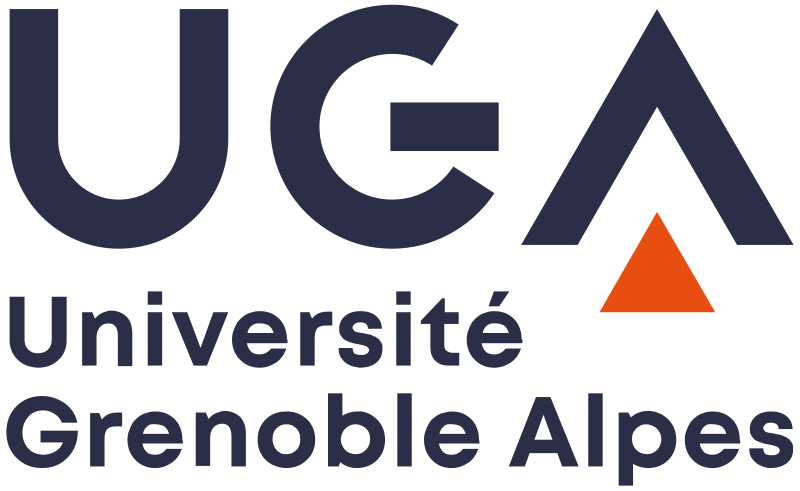On propose dans cette Note un modèle PML bien posé pour l'élastodynamique. La technique utilisée repose sur une approche algébrique conduisant à un problème fortement bien posé et assurant la continuité des inconnues à la traversée de la couche évitant ainsi les réflexions parasites. De plus ce nouveau modèle porte sur les inconnues primitives contrairement à celui obtenu par l'approche de Bérenger [J.P. Bérenger, J. Comput. Phys. (1994) 185–200]. Il est donc plus facile à intégrer dans un code de calcul existant.
We propose in this paper a well-posed PML model for the elastodynamic system. The technique relies on an algebraic approach leading to a strongly well posed system, ensuring continuity of the variables across a layer, avoiding interfering reflexions. Moreover, this new model is written in the primitive variables, unlike the system obtained by the Bérenger approach [J.P. Bérenger, J. Comput. Phys. (1994) 185–200] and so is easier to integrate into an existing code.
Accepté le :
Publié le :
@article{CRMATH_2004__338_12_963_0,
author = {Rahmouni, Adib},
title = {Un mod\`ele {PML} bien pos\'e pour l'\'elastodynamique anisotrope},
journal = {Comptes Rendus. Math\'ematique},
pages = {963--968},
publisher = {Elsevier},
volume = {338},
number = {12},
year = {2004},
doi = {10.1016/j.crma.2004.04.001},
language = {fr},
url = {https://www.numdam.org/articles/10.1016/j.crma.2004.04.001/}
}
TY - JOUR AU - Rahmouni, Adib TI - Un modèle PML bien posé pour l'élastodynamique anisotrope JO - Comptes Rendus. Mathématique PY - 2004 SP - 963 EP - 968 VL - 338 IS - 12 PB - Elsevier UR - https://www.numdam.org/articles/10.1016/j.crma.2004.04.001/ DO - 10.1016/j.crma.2004.04.001 LA - fr ID - CRMATH_2004__338_12_963_0 ER -
%0 Journal Article %A Rahmouni, Adib %T Un modèle PML bien posé pour l'élastodynamique anisotrope %J Comptes Rendus. Mathématique %D 2004 %P 963-968 %V 338 %N 12 %I Elsevier %U https://www.numdam.org/articles/10.1016/j.crma.2004.04.001/ %R 10.1016/j.crma.2004.04.001 %G fr %F CRMATH_2004__338_12_963_0
Rahmouni, Adib. Un modèle PML bien posé pour l'élastodynamique anisotrope. Comptes Rendus. Mathématique, Tome 338 (2004) no. 12, pp. 963-968. doi : 10.1016/j.crma.2004.04.001. https://www.numdam.org/articles/10.1016/j.crma.2004.04.001/
[1] Wave Propagation in Elastic Solids, North-Holland, 1973
[2] Stability of perfectly matched layers, group velocities and anisotropic waves, J. Comput. Phys., Volume 188 (2003), pp. 399-433
[3] Application of the PML absorbing layer model to the linear elastodynamic problem in anisotropic heterogenous media, Geophysics, Volume 66 (2001) no. 1, pp. 294-307
[4] Analyse mathématique et calcul numérique pour les sciences et les techniques, vol. 9, 1984
[5] Symmetric positive systems of differential equations, Comm. Pure Appl. Math., Volume 7 (1954), pp. 345-392
[6] A. Rahmouni, Well posed PML models for various hyperbolic systems, Ph.D. Thesis, January 2000
[7] Un modèle PML bien posé pour les équations d'Euler linéarisées, C. R. Acad. Sci. Paris, Ser. I, Volume 331 (2000), pp. 159-164
[8] Interpreting and improving the PML absorbing boundary condition using anisotropic lossy mapping of space, IEEE Microwave Guided Wave Lett., Volume 5 (1995)
[9] Advances in Computational Electrodynamics: The Finite-Difference Time-Domain Method, Artech House, Boston, MA, 1998
[10] A general approach for development of unsplit-field time-domain implementations of perfectly matched layers for FDTD grid truncation, IEEE Microwave Guided Wave Lett., Volume 6 (1996)
Cité par Sources :








